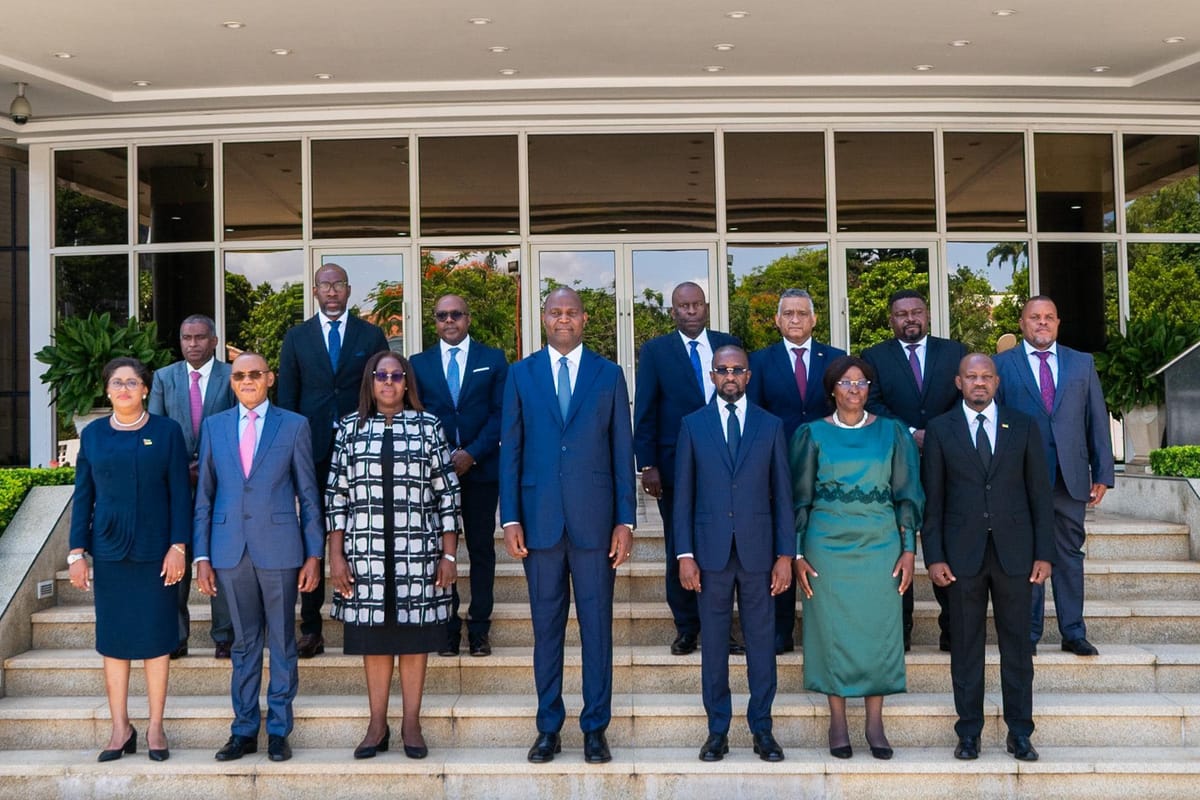Good afternoon. The new finance minister, Carla Louveira, is trying to reduce the cost of government borrowing, according to a note sent out by her ministry this week. The note sought to play down Louveira's comments last week, where she talked about “restructuring” debt, a word that was picked up by the media and which caused the yield of Mozambique's external debt to rise. In fact, and contrary to what newspaper A Verdade suggests, the latest note does not entirely rule out restructuring government debt.
But ultimately, whether government debt is restructured or not will not be a matter of political decision, but fiscal reality. As this newsletter has noted before, the public finances have been getting weaker and weaker, even before the election-related demonstrations punched a hole in government revenues. Louveira may find that she has no alternative to asking creditors for a debt restructuring, if the government is to avoid an unscheduled default on debt repayments, something that would only drive up its borrowing costs still further.
What is clear from the finance ministry’s note is that the government is exploring ways in which its borrowing could be made cheaper, for example through encouraging the growth of the market for government debt, including by allowing individuals as well as institutions to buy debt on the secondary market.
Beyond such minor adjustments, however, the government needs to think about how monetary policy determines the cost of borrowing, which means at very least having some tough conversations with Bank of Mozambique governor Rogério Zandamela. Zandamela’s hardline approach to controlling inflation has involved high interest rates (the MIMO reference interest rate stands at 12.75%) and very high bank reserve requirements, both of which are designed to curb inflation by controlling borrowing activity. As we have noted before, this policy of restraint is in tension with the government's policy of running a deficit in order to pay for everything in its budget. The net result is that the taxpayer is forced to pay the high interest rates that are the inevitable result of a high policy rate, low liquidity due to those reserve requirements, and the government's weak credit quality (some debt repayments have been late in recent years).
The existing debt reduction strategy depends in part on reducing the government's reliance on the most expensive kind of debt, short-term treasury bills and bonds, and relying more on cheaper debt from development banks and on grant funding. But it is struggling to stick to that goal: the latest debt figures show domestic debt increasing both in absolute terms and as a share of overall debt.
It will take more than an “explanatory note” to reassure financial markets that the government is able to repay its debts. Avoiding a default while also meeting President Daniel Chapo’s aspirations to deliver better public services is going to make Louveira’s job one of the hardest in the government, if not the hardest of all.
The latest from Zitamar News:
Agenda:
Today: Provincial governors are introduced to their constituencies and formally sworn in by a presidential representative
Today’s headlines:
- Police open fire to clear toll gates on N4 highway, but tolls remain unpaid (Lusa, O País, AIM)
- Public sector strike mainly affects health and education (Mediafax, TV Sucesso)
- Renamo to hold council meeting to address political situation, after taking seats next month (Domingo, O País)
- Cahora Bassa operator posts record profits in 2024, despite low water levels (Lusa, Carta de Moçambique)
- Mozambique considers exporting biofuels, again (Notícias)
Police open fire to clear toll gates on N4 highway, but tolls remain unpaid (Lusa, O País, AIM)
Police fired several shots yesterday morning to reopen access to the toll gates on the N4 highway between Maputo and the South African border, which had been blocked by demonstrators protesting against toll collection. The protesters reacted by throwing stones, including at vehicles accessing the site. Others set up barricades and set fire to tyres. After the police intervened, traffic began to flow again, but at the toll booths payment became voluntary, with some gates open. The road’s operator had been trying to reimpose toll collection after it had been suspended for several weeks during protests linked to last year’s disputed elections. Former presidential candidate Venâncio Mondlane has called for the country not to pay tolls until April.
Today, people are also refusing to pay the toll on the Maputo-Matola highway. The N4 concession company, Trans Africa Concessions, has acted on bad advice that Mondlane’s supporters are tired and no longer willing to launch street protests. The blockage of the toll road payments is a clear bonus for the small Mozambican middle class. Squatters living in shanty towns move in easily to protest at toll plazas because these are small oases of wealth in a dramatic desert of poverty. People also believe that shareholders in concessionaire companies are part of the ruling Frelimo party .
Public sector strike mainly affects health and education (Mediafax, TV Sucesso)
Many health centres in the city and province of Maputo are providing only minimal services, while others are completely closed due to the public sector strike. Health professionals are saying that they will not work normally until the government pays them the bonus “13th” monthly salary and overtime. The strike is also being felt in schools, with teachers suspending the supervision of special exams scheduled for this month. In response, health centre managers are opting to work with student trainees, while in schools, members linked to the ruling party Frelimo are being hired to invigilate exams.
This strike is heavily politicised and focused on the Maputo metropolitan area, where protest movements can attract better media coverage. The strikers believe that the government is too weak to counter the protests, despite the fact that the payments are not mandated by law.









